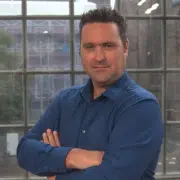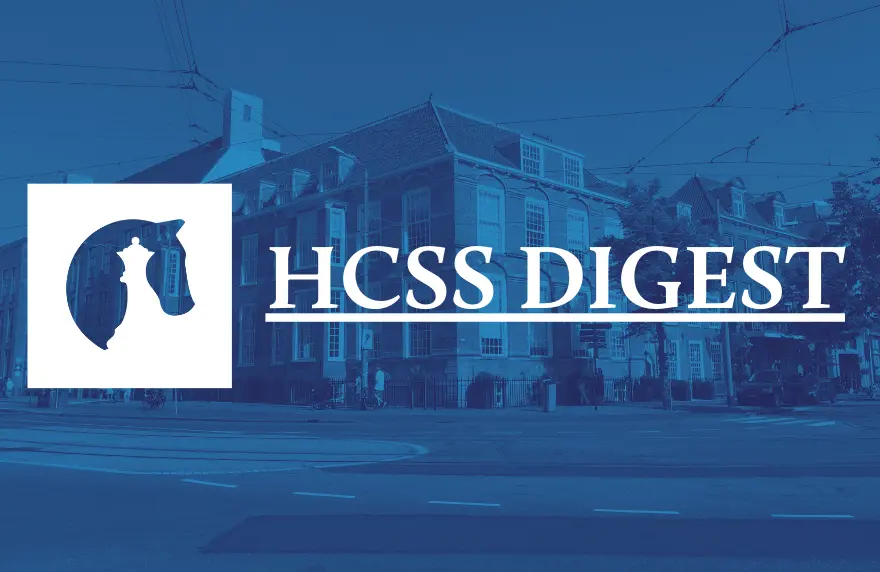Can the tank storage sector survive the transition away from fossil fuels? Does the increasing power of China also offer opportunities for the Dutch agri-food sector? Who will become the new German Chancellor? And why is coal undergoing a minor revival? Found out in the latest HCSS Digest!
What are the consequences of the energy transition for the tank storage sector? Can they survive the transition away from fossil fuels? Find out in our latest paper, “The European tank storage sector and the global energy landscape”, by Jilles van den Beukel, Lucia van Geuns, Irina Patrahau and Michel Rademaker.
How can the Dutch tank storage sector maintain its strategic position? Currently, 80% of available storage capacity is filled with oil. In the latest episode of our BNR podcast De Strateeg, Paul van Liempt discusses the issue with HCSS author Jilles van den Beukel (HCSS) and Willem-Henk Streekstra (VOTOB, the Dutch Association of Tank Storage Companies).
Does the increasing power of China also offer opportunities for the Dutch agri-food sector? In close collaboration with the Ministry of Agriculture, HCSS organized 2 round tables on the relationship between the Dutch agri-food business and China. The results of the discussion have been processed in a new paper by Michel Rademaker and Dorith Kool.
On Sept. 8, HCSS Director of Research Tim Sweijs and Senior Strategic Analyst Jack Thompson presented a master class to the Committee on Defense of the Dutch Parliament, where they spoke about “The Changing Character of Conflict” and “The Future of Transatlantic Relations”, respectively.
HCSS Senior Strategic Analyst Laura Birkman and former Commander of the Dutch armed forces Tom Middendorp participated in the Climate Policy and Security panel of the 30th Economic Forum in Karpacz, Poland last week. Ahead of the session they presented the “World Climate & Security Report 2021” issued by the International Military Council on Climate and Security (IMCCS), and discussed the importance of early warning and early action on climate security for Europe, together with Robert Dresen from the NATO Secretary General office and Prof. Zbigniew Karaczun of the Polish Climate Coalition.
Technology, hybrid threats and risk governance all make up the agenda of security challenges small states may face. At the 2021 Taipei Security Dialogue later this month, noted experts from across the world will come together to discuss these topics. HCSS Director of Research Tim Sweijs will participate in a panel on Countering Hybrid Threats: Implications for Small States.
In a bid to curb the growth of extreme parties, the moderate parties took over their anti-European policies. Consequently, over the years, the Netherlands became Eurosceptic. Surprisingly, in her 2020 Defence Vision 2035 the Dutch Minister for Defense made a very strong statement in favor of European defense cooperation, Rob de Wijk comments at Carnegie Europe: NATO will remain important, but acting unanimously “is no longer a given. Europe has to be able to act more independently, but cannot yet do so.”
In 2 weeks, the Merkel era will be over after 16 years. The big question, of course: who will succeed her and become the new German Chancellor? Social democrat Scholz (SPD) is now leading the polls, ahead of Laschet, the candidate of Merkel’s CDU party, something that no one would have expected 18 months ago, HCSS Director of Political Affairs Han ten Broeke commented on WNL’s Goedemorgen Nederland.
Observers were already banned from the Russian parliamentary elections, but now the Kremlin wants to get the internet under control as well. HCSS Russia expert Helga Salemon explained just how far this intervening goes on NPO Radio 1’s EenVandaag: “Fear at the Kremlin runs high. The internet is the only place where the opposition can still move freely, and the Kremlin really doesn’t like that.”
The south of Europe fears refugees and terrorists. The east is afraid of the Russians. And the west of Europe fears nothing and is mainly concerned with itself, writes Rob de Wijk in his weekly column for Trouw: Zapad 21, the largest Russian exercise ever, was followed with fear and trembling in the eastern part of Europe. But the Dutch, like many other Western Europeans, think they live in a zone of eternal peace.
“The price of gas has really taken off due to growing global demand, which is at an all-time high,” HCSS energy specialist Jilles van den Beukel commented in Algemeen Dagblad and het Parool. “As a result, coal is now undergoing a minor revival. That is remarkable. It shows how extreme the situation on the international gas market is.”
From October 18-20, the 15th NATO Operations Research and Analysis (OR&A) Conference will take place, the theme this year being ‘Decision Advantage in The Information Age’. Among the speakers is HCSS Principal Scientist Stephan de Spiegeleire, who will talk about ‘Deterrence – We hardly know yet.’
The corona crisis has gripped the entire world for more than a year. It is essential that we learn from this unprecedented crisis and translate the experiences into measures for the future. That is why SVDC is organizing a symposium with 6 crisis experts – including Rob de Wijk – on 14 October.




